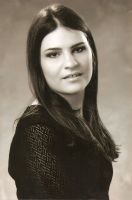Coordinating Conjunctions
Coordinating conjunctions are defined as words that link or coordinate two or more linguistic constituents such as words, phrases, and clauses. They usually link similar grammatical parts of a sentence together ( i. e. parts of speech + pats of speech; phrase + phrase; clause + clause). The seven coordinating conjunctions in English are: and, or, but, nor, so, yet, for.
And – 1. His golden hair and light blue eyes gave him a look of efortless innocence. (Howatch, 1971:253). 2. I was silent, I knew even then that Philip and I were not destined to be friends. (Howatch, 1971:251). 3. William and Marcus were playing French cricket on the lawn while Mariana sat daintily on the swing and watched them. (Howatch, 1971:257). 4. I wanted to annul my marriage to Laurence and marry Giles, but my father wouldn`t have it. (Howatch, 1971:23). 5. You brought William and me up and Papa was hardly ever here in the beginning. (Howatch, 1971:256). Or - 1. I could not hear or speak or see, but suddenly I knew I was outside, for the air was fresh against my aching throat and the sea breeze ran light fingers over my hot cheeks and burning eyes. (Howatch, 1971:33). 2. You must try to converse on other subjects or people will think you very vain, always talking about yourself. (Howatch, 1971:279). 3. Now dont`t interrupt me or I swear I`ll lose my temper too and then we`ll both be sorry. (Howatch, 1971:289). 4. There is nothing more impossible to fight than rumor or that dreadful phrase “no smoke without a fire.“ (Howatch, 1971: 105). 5. She did not say ``Mr. Castallack`` or even ``young Mr. Castallack``. (Howatch, 1971:91).
But - 1. He was fond of me in his own way, but it was my brother Arthur who was the apple of his eye. (Howatch, 1971:6). 2. There were two mines on the Penmaric estate, my mother told me, but only one, Sennean Green, was still operating. (Howatch, 1971:11). 3. She must have been surprised to see a stranger in that remote moorland village, but not even a nuance of her surprise showed itself on her face. (Howatch, 1971:5). 4. She started to shout at me but I took no notice. (Howatch, 1971:29). 5. She was so angry by this time that she could not speak but merely stood trembling with rage. (Howatch, 1971:29).
Nor – 1. Nor do I wish too. (Howatch, 1971:41). 2. I recognized the dark slanting eyes, the ugly nose and the wide mouth, but not the cold expression which I disliked, nor the craftiness about the eyes which I distrusted. (Howatch, 1971:78). 3. I could not help noticing he was not as forward as Stephen had been, nor as quick to learn new things. (Howatch, 1971:166). 4. Nor did I ride into battle on a milk white charger like some mythical crusader lost in the corridor of time. (Howatch, 1971:362). 5. Nor I could admit that I thought he might outwit me even though I watched him like a hawk. (Howatch, 1971:424). So - 1. The plain truth of the matter is that you`re not certain who his father is, so why twist the truth by assuming a certainty you don`t possess? (Howatch, 1971:28). 2. I was on my way to Zillan from my father`s house at Morvah, and somehow I managed to lose my way, so I decided to stop at your farm to ask directions... (Howatch, 1971:42). 3. One did not expect rapture from someone in those circumstances, and so because I expected nothing I was not dissapointed. (Howatch, 1971:106). 4. So there you are Janna, said Jared amused. (Howatch, 1971:116) 5. I protested but he was adamant, so finally I gave in and did as I was told. (Howatch, 1971:96).
Yet – 1. The flowers were only simple wild roses such as the ones that grew on the walls of the cottages nearby, and yet their very simplicity made the hothouse roses of London seem vulgar and ostentatious. (Howatch, 1971:5). 2. Yet here was this doctor`s daughter, worth ten of any female paraded for the London Season only not one tenth as fortunate in terms of affluence and position. (Howatch, 1971:62). 3. Accordingly, feeling satisfied that the arrangments for Rose were completed yet still bitter about my quarrel with Vincent, I left Penzance and rode up into the hills through Zillan to my father`s house at Morvah. (Howatch, 1971:85). 4. Yet there was nothing I dared do. (Howatch, 1971:115). 5. Yet she must be someone of consequence if she`s riding her own horse. (Howatch, 1971:317).
For – 1. There were even flowers on the mantelshelf above the fireplace, a fact that suprised me, for I had thought the working classes seldom used the front room of their homes. (Howatch, 1971:42). 2. I visited it every week to thank him in my prayers for helping me escape from St. Ives, and even after Laurence began to call at the farm I never missed my weekly visits to the churchyard at Zillan. (Howatch, 1971:101). 3. I could understand why my mother thought he was dull and provincial, for he loathed city life and was always happiest in the tranquil Cornish backwater of Gweek. (Howatch, 1971:17). 4. I discovered that he was a bachelor, a fact that suprised me, for he was at least as old as I was and rural folk often marry young. (Howatch, 1971:108). 5. I did an honest day`s work and was paid an honest wage, for I wanted to work hard in a respectable environment, not to slip down into the gutter. (Howatch, 1971:106).
CORPUS – Howatch, Susan. (1971). Penmarric. New York: Simon and Schuster.
